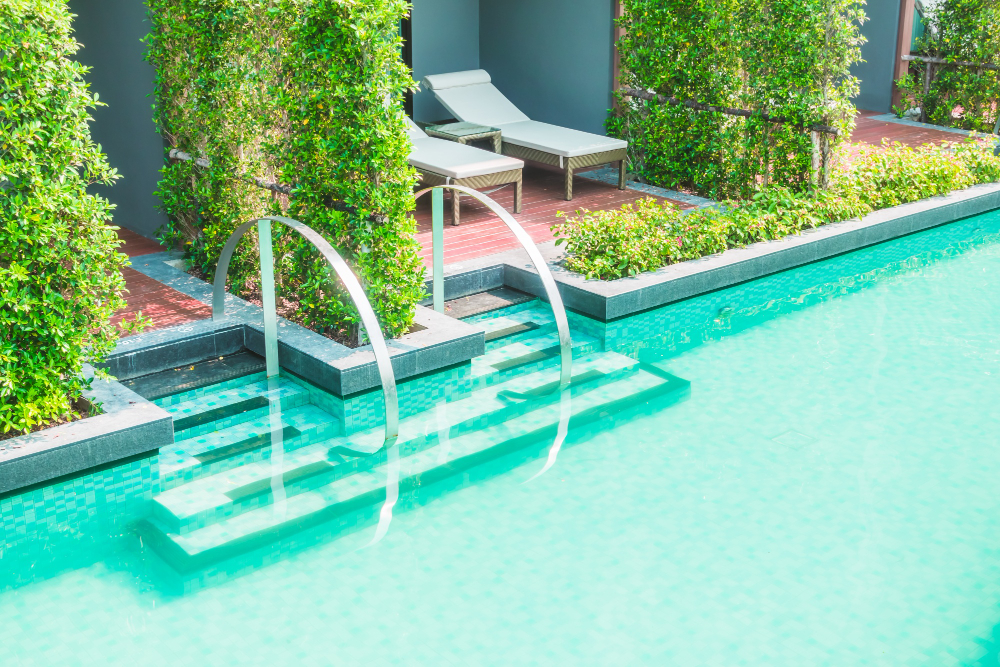
Do you own a swimming pool that needs some TLC? Whether you're considering a simple upgrade or a complete pool renovation in Melbourne, FL, exploring chlorine alternatives can be a game-changer. Chlorine has been the go-to solution for pool sanitization for decades, but it comes with its set of downsides, such as eye irritation and a strong chemical smell. Luckily, there are now several effective and eco-friendly alternatives available.
In this blog post, we'll explore some of the best chlorine alternatives for swimming pools, their benefits, and why you should consider them for your upcoming pool renovation.
Why Consider Chlorine Alternatives?
Before we jump into the alternatives, let's discuss why you might want to consider switching from chlorine:
- Health Concerns: Chlorine can irritate the skin, eyes, and respiratory system.
- Environmental Impact: Chlorine can have a harmful effect on the environment, including aquatic life.
- Maintenance: Chlorinated pools require constant monitoring and maintenance to keep chlorine levels balanced.
- Smell and Taste: Many people find the smell and taste of chlorine unpleasant.
If these issues sound familiar, it might be time to explore other options.
Popular Chlorine Alternatives
1. Saltwater Pools
One of the most popular alternatives to traditional chlorine pools is the saltwater pool. Instead of adding chlorine directly to the water, you use a salt-chlorine generator that converts salt into chlorine through a process called electrolysis.
Benefits:
- Lower Chlorine Levels: While saltwater pools still produce chlorine, the levels are much lower, reducing skin and eye irritation.
- Softer Water: The water feels softer and more luxurious.
- Less Maintenance: Saltwater pools generally require less frequent maintenance compared to traditional chlorine pools.
Drawbacks:
- Initial Cost: Installing a salt-chlorine generator can be expensive.
- Corrosion: Saltwater can be corrosive to certain pool components, requiring more frequent replacements.
2. Mineral Water Pools
Mineral water pools use a combination of natural minerals like copper and silver to sanitize the water. These minerals have natural disinfectant properties that help keep your pool clean.
Benefits:
- Gentle on Skin and Eyes: Mineral water is far gentler on the skin and eyes compared to chlorine.
- Eco-Friendly: Minerals are a more natural and eco-friendly way to keep your pool clean.
- Low Maintenance: These pools are generally easier to maintain.
Drawbacks:
- Cost: Mineral systems can be more expensive to install.
- Effectiveness: While effective, mineral systems may not be as reliable as chlorine or saltwater systems in killing bacteria and algae.
3. UV Pool Systems
UV pool systems use ultraviolet light to kill bacteria, viruses, and algae. Water passes through a UV light chamber, which neutralizes harmful microorganisms.
Benefits:
- Chemical-Free: UV systems don't add any chemicals to the water.
- Effective: UV light is very effective at killing bacteria and algae.
- Low Maintenance: These systems require very little maintenance once installed.
Drawbacks:
- Initial Cost: Installing a UV system can be costly.
- Electricity: UV systems require electricity to operate, which can increase your energy bill.
4. Ozone Pool Systems
Ozone pool systems use ozone gas to sanitize the water. Ozone is a powerful oxidizing agent that effectively kills bacteria and viruses.
Benefits:
- Strong Sanitizer: Ozone is one of the most effective pool sanitizers available.
- Reduced Chemical Use: Ozone can significantly reduce the need for additional chemicals.
- Improved Water Quality: Ozone improves water clarity and quality.
Drawbacks:
- Initial Cost: Installing an ozone system is expensive.
- Maintenance: Ozone systems require regular maintenance to ensure they are functioning correctly.
- Electricity: Like UV systems, ozone systems require electricity to operate.
How to Choose the Right Alternative
Choosing the right chlorine alternative for your pool depends on several factors, including budget, maintenance preferences, and health concerns. Here are some tips to help you make an informed decision:
- Assess Your Budget: Calculate the initial installation cost and ongoing maintenance expenses.
- Consider Health Benefits: If you or your family have sensitive skin or respiratory issues, opt for a gentler alternative like mineral water or UV.
- Maintenance: Determine how much time you're willing to invest in maintaining your pool. Some systems require less ongoing maintenance than others.
Contact All Phase Pool Remodeling for Your Pool Renovation in Melbourne, FL
If you're considering a pool renovation in Melbourne, FL, look no further than All Phase Pool Remodeling. Our team of experts can help you choose the ideal chlorine alternative and ensure your pool is both beautiful and healthy.
Why Choose Us?
- Expert Curation: We provide professional advice tailored to your needs.
- Quality Service: We pride ourselves on delivering top-notch service.
- Free Estimates: Contact us today for a free estimate and get started on your pool renovation project.
Get in Touch
Ready to transform your pool? Contact All Phase Pool Remodeling today. Your dream pool is just a call away.